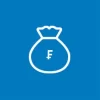If you would like to receive a detailed comparison of the costs and performance of Swiss retirement funds, simply enter your email address in this field and click on “Request free PDF”.

Swiss Retirement Funds 2017: Costs and Performance Compared
moneyland.ch compared the performance and costs of Swiss retirement funds which fall under the third pillar of retirement savings. The result: Swiss retirement funds are relatively expensive across the board, but differences between individual retirement funds are significant.
Interest yields on savings have become a scarce resource in Switzerland. That applies to both savings accounts and retirement savings. Swiss 3a retirement savings accounts now have an average interest rate of just 0.34% per year. The average annual interest rate of Swiss vested benefits accounts is just 0.13%. The poor returns have led many savers to question whether investing through a retirement fund might be a more lucrative option.
Major differences between retirement funds
moneyland.ch conducted a careful comparison of the costs, terms and conditions of 62 Swiss retirement funds. You can request a copy of the tabular comparison at the foot of this article.
The verdict: Swiss retirement funds are relatively expensive, with unweighted average costs of 1.17% per annum. This average accounts for all applicable fees charged by the retirement funds included in the comparison across a 10-year period, regardless of their scale and investment strategies. Thanks to the positive performance of the stock market over the past years, even expensive retirement funds have delivered significantly higher returns than savings accounts. Naturally, this advantage is subject to the volatility of capital markets and may change at any time.
Investors are typically interested in the performance of investment funds. But basing investment decisions on past performance can backfire: Performance is subject to change. Fees and charges, on the other hand, remain identical regardless of performance. Unlike performance, which is impossible to predict, costs are fully predictable and can be calculated ahead of investing.
Costs of retirement funds explained
The total expense ratio (TER) is the most important cost factor in most cases. This ratio is shown as a percentage of invested capital.
Example: If you invest 50,000 Swiss francs in a retirement fund which has a TER of 1%, you will pay 500 francs per year in administrative fees. The TERs of the retirement funds included in the comparison vary between 0.33% and 1.72% per year. The average TER across all compared funds is 0.94%. The rule of thumb: the larger a portion of a fund portfolio made up of investments in stocks, the higher the TER. The term “total expense ratio” is somewhat misleading, because depending on the fund in question, it may not account for all fees and charges.
Custody fees
Custody fees charged for the safekeeping of securities held by the fund are accounted for in the TER. But many investors are unaware of the fact that additional, third-party custodial fees may be charged. For example, these additional, annual custodial fees are equal to 0.1% of fund share value at Reichmuth & Co, 0.2% of fund share value at Baloise Bank SoBa, 0.25% of fund share value at the Luzerner Kantonalbank, 0.3% at the Zürcher Kantonalbank, 0.45% (minimum 50 francs) at the Berner Kantonalbank, and 1% at Swiss Life (for safekeeping by its custodian bank partners).
Fund share purchase and sale fees
In addition to the TER and possible, additional custodial fees, retirement funds may also charge transaction fees when investors purchase shares in the fund (the front-end load), and when they sell their shares back to the fund (the back-end load). Funds which charge investors a front-end load for the purchase of fund shares include those operated by Baloise (1%), the Berner Kantonalbank (up to 1.5%), the Luzerner Kantonalbank (0.4%), Mobiliar (up to 2%), Raiffeisen (up to 1%), Swiss Life (2% when shares are purchased offline) and the Zürcher Kantonalbank (0.65%). Fees for selling fund shares back to funds are less common. Funds which charge a back-end load include those operated by Baloise (1%), Reichmuth & Co. (120 francs) and the Zürcher Kantonalbank (0.65%).
Example: You invest 50,000 francs in a retirement fund which charges a 1% commission when you buy its shares and another 1% commission when it buys back its shares. Some time after buying your shares, you sell them back to the fund for the same amount which you paid for them (50,000 francs). In this case you would pay 1000 francs towards front-end and back-end loads (2 x 1% of 50,000). These fees are only charged once and not on a recurring basis, so their impact on your investment depends in part on the length of the investment term. The shorter the investment term, the bigger the impact of front-end and back-end loads on investment outcomes.
Total costs of retirement funds
A fair comparison must account for the total costs associated with individual retirement funds, including the total expense ratio, custodial fees and commissions charged for the purchase and sale of fund shares. The moneyland.ch comparison accounts for total costs.
Result: The average cost of investing a constant amount of 100,000 francs through Swiss retirement funds over a 10-year investment term is 11,650 francs. Investing this amount in the most expensive fund would cost 17,900 francs, while the total costs of the cheapest fund would come to 5300 francs. The total costs of the most expensive retirement fund are more than 3 times higher than the total costs of the cheapest fund.
Retrocession fees and other expenses
In addition to the most important fees, fund shareholders may be charged a number of additional fees (account statement fees, for example). Some funds charge fees for the rebalancing of investment portfolios, or for transferring your assets to other investment funds. Some funds still pay out sales commissions in the form of retrocession fees to third-parties (financial advisors, banks, consultants) for their role in bringing new investors to the fund. These sales commissions are not billed to fund shareholders, but are the subject of some controversy. Retirement funds which pay out retrocession fees include those offered by the Banque Cantonale Vaudoise, Mobiliar and PostFinance.
Fund performance compared
moneyland.ch examined the cumulative, TER-adjusted performance records of Swiss retirement funds for 1-year, 3-year and 5-year periods. Costs other than the TER, including additional custodial fees, front-end loads and back-end loads, are not accounted for in performance measurements. The fact that funds with higher levels of stock investments have generally performed better than other funds can be attributed to the strong performance of the stock market in recent years.
The retrospective investment growth performance of Swiss retirement funds over the past five years has averaged 7.56% over the past 1 year, 9.10% over the past 3 years combined, and 23.21% over the past 5 years combined. The actual performance of individual funds varies by a wide margin. For example, 5-year performance ranges between -3.18% and 38% depending on the individual fund and investment strategy. It is worth noting that the Swiss Market Index (SMI) climbed by 36% over the past 5 years.
The higher the proportion of investments made up of stocks in relation to conservative investment vehicles like bonds, the better funds have performed. But it is very important that investors understand that past performance has little bearing on future performance. If stock market rates were to collapse, retirement funds or individual portfolios which include large stock investments can incur heavy losses which may take years to recover from.
The retirement funds which have delivered top performance in recent years provide investors with an opportunity for higher returns, but also carry a higher level of risk. It is also important to note that the larger the portion of investments made up of stocks, the higher the TER will be. As a general rule, retirement funds are best suited to long-term investments because investing over a long term minimizes the risk posed by economic volatility.
Actively-managed and passively managed retirement funds
A majority of Swiss retirement funds are actively-managed funds. The costs of passively-managed funds like exchange traded funds (ETFs) are lower, on average. The average total expense ratio of the actively-managed funds included in the comparison is 0.99% while that of the passively-managed retirement funds in the comparison is a lower 0.69%. Research has shown that actively-managed investment strategies generally perform more poorly than passively-managed investment strategies. However, actively-managed retirement funds are more heavily promoted due the higher revenues which they generate for banks and other fund operators.
More on this topic:
Swiss securities broker comparison
ETF costs explained
3a retirement account comparison
3a retirement funds: Things you should know
Brokers with low fees
Saxo Bank Switzerland
Licensed Swiss bank (FINMA)
No custody fees when securities lending is activated
Free expert research and trading signals
Cornèrtrader
Swiss online bank
No custody fees for stocks
Free market research and trading signals








